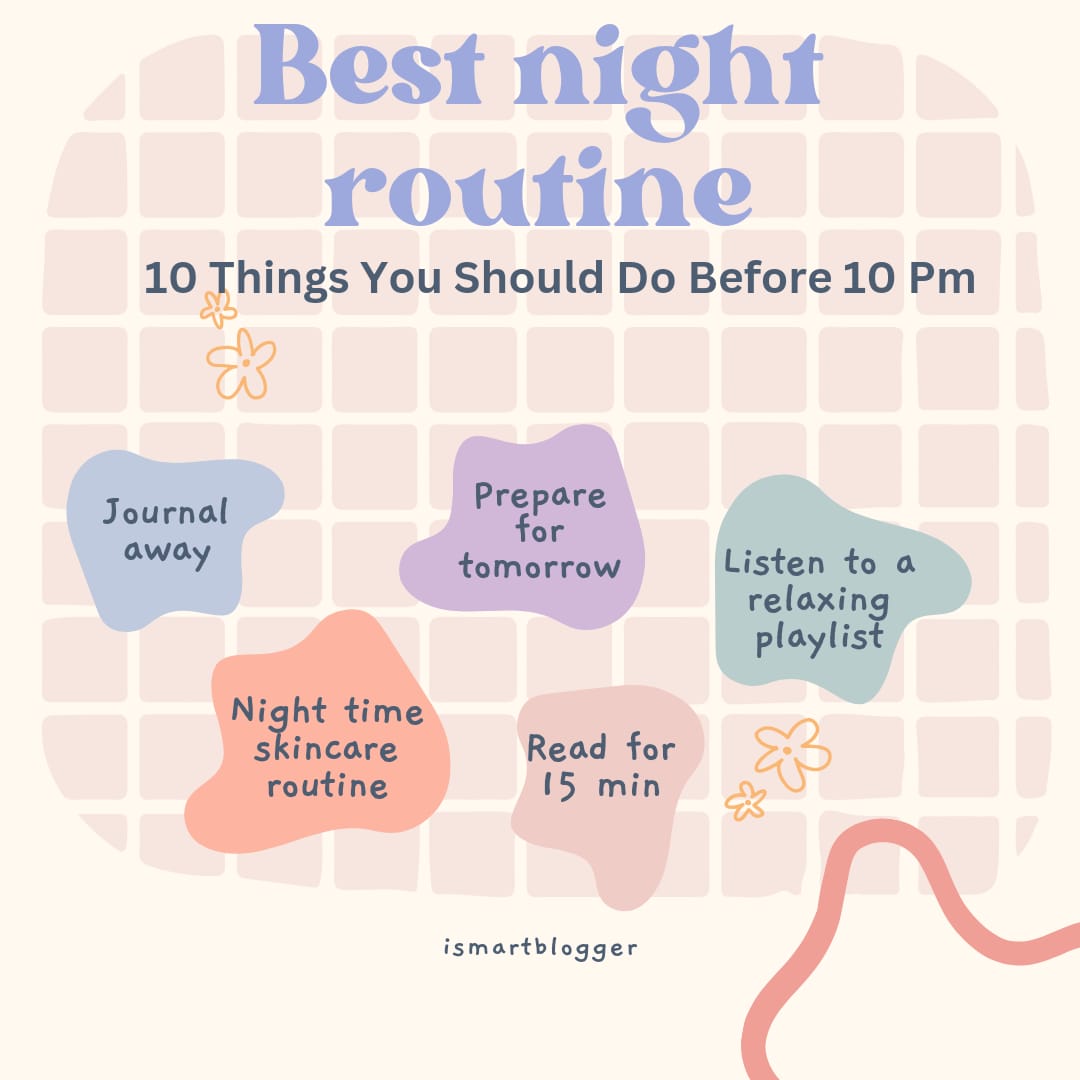Crafting a bedtime routine is key to ensuring a restful night’s sleep. Incorporating these ten steps can significantly improve your sleep hygiene and overall well-being. From powering down devices and dimming lights to engaging in calming activities like reading, stretching, and meditation, you pave the way for relaxation and mental preparation for a restful sleep. Moreover, these habits not only reduce stress and anxiety but also contribute to better productivity, mood, and overall health.
Establishing good sleep hygiene through a consistent bedtime routine is essential for reducing the risk of various health issues, enhancing concentration, and even managing weight effectively. Ensuring a good night’s sleep consistently can aid in maintaining optimal physical and mental health. Therefore, integrating these steps into your bedtime routine is a great way to promote healthy sleep patterns and enjoy the multitude of benefits a good night’s sleep can offer.
Introduction:
Sleep is an essential part of our daily routine, and getting a good night’s sleep is crucial for overall health and well-being. A good night’s sleep allows us to recharge and prepares us for the next day. However, many people struggle with getting a good night’s sleep, and this can lead to various health problems, including insomnia, depression, and anxiety. One of the best ways to ensure a good night’s sleep is to establish a bedtime routine that can help you relax and prepare your body for sleep. In this blog post, we will outline ten things you should do before 10 pm for a perfect night time routine.
Power down devices:
The first thing you should do before bedtime is to turn off all electronic devices at least 30 minutes before going to bed. The blue light emitted from electronic devices can disrupt your natural sleep-wake cycle and make it harder to fall asleep. By turning off all electronic devices, you can help signal to your brain that it’s time to wind down and prepare for sleep.
Dim the lights:
Bright lights can also disrupt your natural sleep-wake cycle, so it’s important to dim the lights before bedtime. Dimming the lights will help your body relax and prepare for sleep.
Prepare for the next day:
One of the best ways to reduce stress and improve productivity is to prepare for the next day. Before going to bed, set out your clothes, pack your bag, and plan your schedule for the next day. By doing this, you can reduce stress and start the day off on the right foot.
Take a bath or shower:
A warm bath or shower before bedtime can help relax your muscles and prepare your body for sleep. The warm water can help relieve tension and promote relaxation, making it easier to fall asleep.
Stretch or do yoga:
Gentle stretching or yoga poses before bedtime can help release tension and promote relaxation. By doing this, you can reduce stress and anxiety, making it easier to fall asleep.
Read a book:
Reading a book before bedtime can help calm your mind and distract you from any worries or stresses of the day. By reading a book, you can relax and prepare your mind for sleep.
Drink herbal tea:
Certain herbal teas, such as chamomile, can help promote relaxation and prepare your body for sleep. Drinking a cup of herbal tea before bedtime can help you relax and fall asleep more easily.
Practice mindfulness or meditation:
Mindfulness or meditation practices before bedtime can help quiet the mind and promote relaxation. By practicing mindfulness or meditation, you can reduce stress and anxiety, making it easier to fall asleep.
Listen to calming music:
Listening to calming music before bedtime can help reduce stress and promote relaxation. By listening to calming music, you can create a peaceful environment that can help you fall asleep more easily.
Go to bed at the same time every night:
Going to bed at the same time every night can help regulate your sleep-wake cycle and improve the quality of your sleep. By going to bed at the same time every night, you can establish a routine that will help your body prepare for sleep.
Conclusion:
Establishing a bedtime routine that includes the ten things outlined in this blog post can help you relax and prepare your body for sleep. By doing these things, you can reduce stress and anxiety, promote relaxation, and improve the quality of your sleep. A good night’s sleep is essential for overall health and well-being, so it’s important to establish a bedtime routine that works for you. By incorporating these tips into your bedtime routine, you can enjoy a good night’s sleep and wake up feeling refreshed and energized for the day ahead.
Incorporating these tips into your bedtime routine can help you improve your sleep hygiene, which refers to the behaviors and practices that promote good sleep. Poor sleep hygiene can lead to insomnia, sleep deprivation, and other sleep disorders that can impact your physical and mental health. By following these ten tips, you can establish healthy sleep habits that will help you get a good night’s sleep consistently.
Moreover, the benefits of a good night’s sleep are numerous, including improved mood, better concentration, and reduced risk of chronic diseases such as heart disease and diabetes. Getting enough sleep is also crucial for weight management as lack of sleep can lead to hormonal imbalances that can contribute to weight gain. Therefore, establishing a bedtime routine that promotes good sleep hygiene can benefit your overall health and well-being in various ways.

